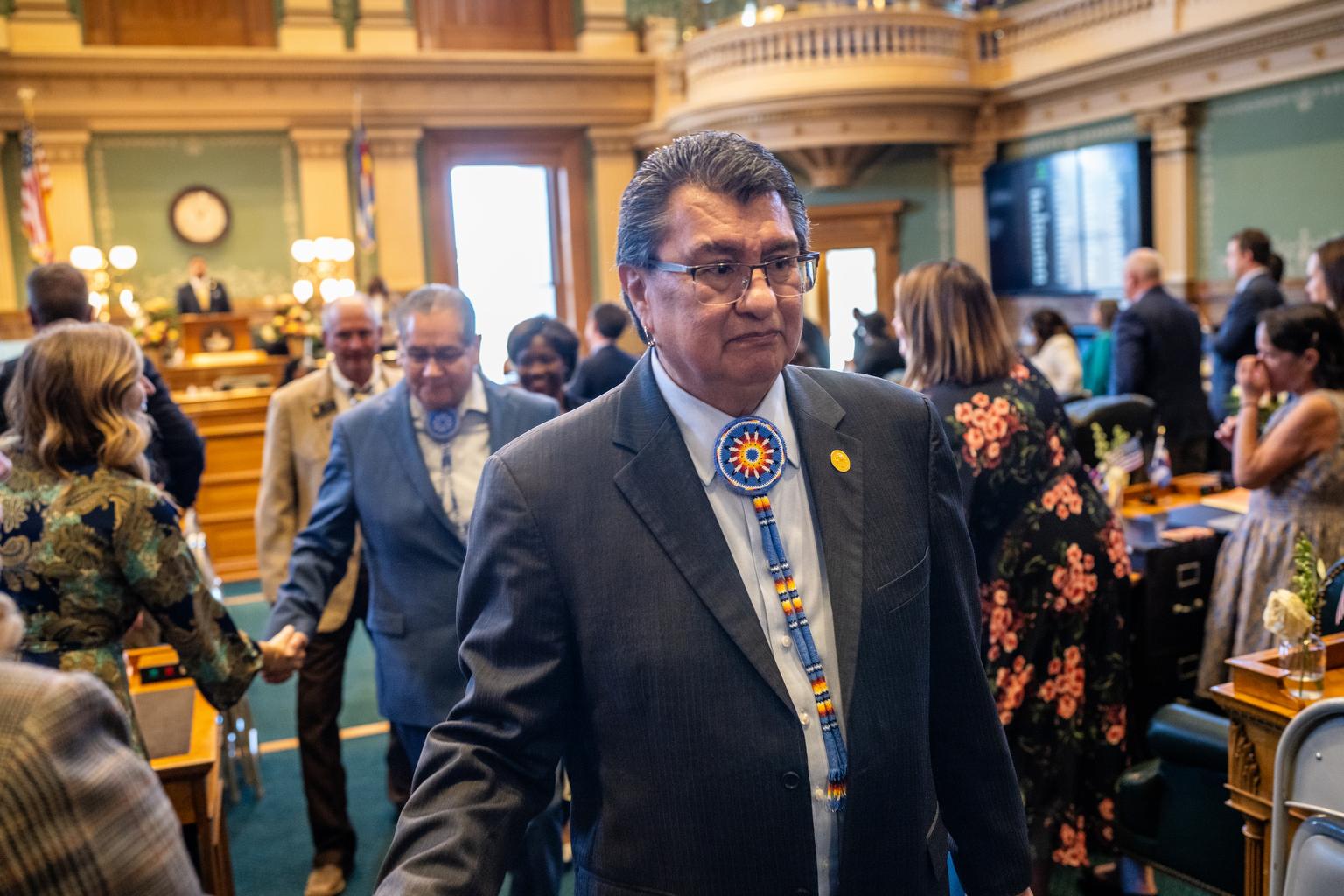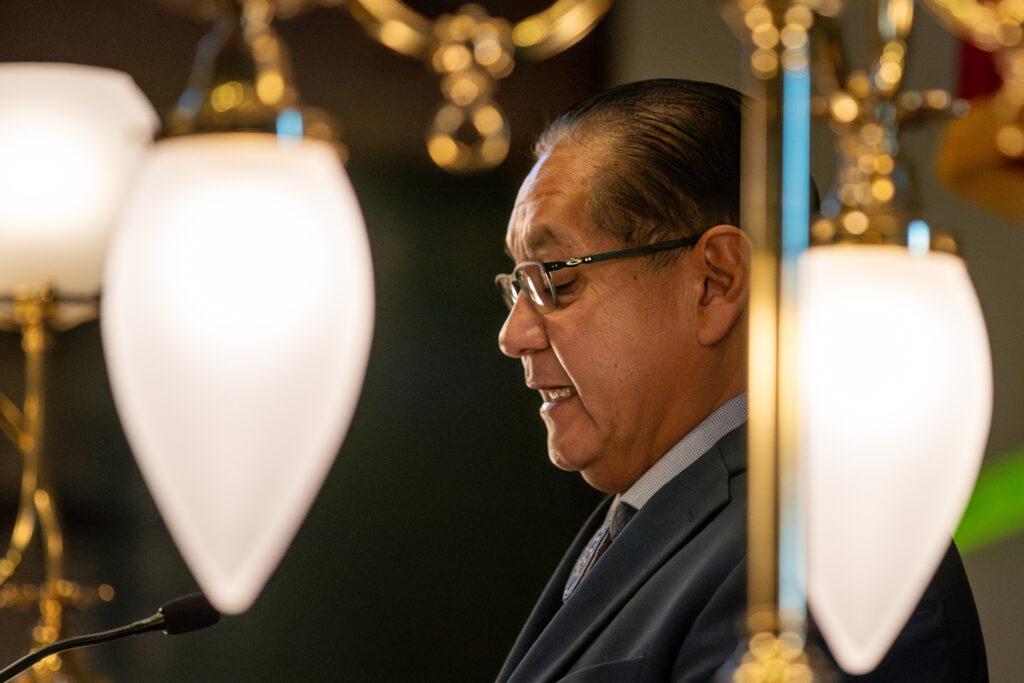
The third annual State of Tribes took place at Colorado’s State Capitol on Thursday. In their speeches, leaders from the Ute Mountain Ute and the Southern Ute urged lawmakers to respect tribal sovereignty as they move through this legislative session.
Both men spoke on the need to continue building a strong working relationship with Colorado’s government.
“One of our main goals is always to remind the state of Colorado, the two tribes are here and we work together,” said Melvin J. Baker, the Southern Ute Tribal Chairman. “Our tribe has a strong government-to-government relationship with the state of Colorado. As the governor stated last week, our values are not dependent on what happens in Washington, D.C. or anywhere else in this country.”
Manuel Heart, chairman of the Ute Mountain Ute tribe, said this kind of cooperation is necessary for Colorado to move forward.
“For all of us, it goes back to our history and what (has) happened since. In the past, there was good and bad, with all the challenges and the successes we have had over time and measuring how far we have come actually from the past all the way up to today,” Heart said. “Yes, there was a dark history, but let's look at how we can make it better.”
Both leaders emphasized the importance of the tribes being included in major policy discussions for the state, like around water rights and grey wolf reintroduction.
“This consultation must take place early in the legislative process, not at the last minute or as an afterthought,” said Baker. “By working together, we can identify potential impacts of legislation on tribal communities and explore solutions that benefit all parties.”
Baker also noted the Southern Ute tribe is leading in Indian Country as a developer of energy resources, real estate, construction and private equity, and he emphasized the tribe’s economic contributions to the Four Corners region.
“Our reservation is home to over 10,000 native and non-native Colorado residents and families. And when it comes to services, those are often provided by the tribe at no cost to the state,” Baker noted.
For his part, Heart wants to see more equity opportunities for the Ute Mountain Ute tribe to develop economically.
“We too also want to have that same equity and opportunity to move forward in all areas,” Heart said during his address.
Both men emphasized that the tribes face the same challenges as the state as a whole: the high cost of housing and the struggle for public budgets to keep up with public needs.
Last year, Colorado lawmakers created the American Indian Affairs Interim Study Committee to help more ideas and proposals from the tribes make it into legislation. In his speech, Baker focused on one of the panel’s bills meant to address due process on tribal lands.

According to Baker, if someone has a warrant issued by tribal courts, the warrant currently isn’t valid if the suspect steps outside of reservation land.
“For example, a Native American could assault a child, our tribal court could issue a warrant for that person's arrest. The person could go to another county or off-reservation and the court there would not recognize the tribe's tribal court order and would allow the person to go free.” Baker said. “All criminals, if they're caught, they should be arrested.”
The bill, Recognition of Tribal Court Orders is being sponsored by Democratic Sens. Dylan Roberts and Jessie Danielson, as well as Reps. Ron Weinberg, a Republican, and Junie Joseph, a Democrat.
In 2022, Danielson sponsored a bill to create the Office of Missing and Murdered Indigenous Relatives. Through that process, the Jefferson County lawmaker was first exposed to the limitations placed on tribal court orders.
“I became aware of some of the issues facing law enforcement and others when they're trying to actually solve or prevent these crimes,” Danielson told CPR News in 2024. “It has to do with warrants and who can honor them. Even if it only impacts reservation lands, if we can lift a barrier through the state statute, we have to.”
In a written statement, House Assistant Minority Leader Ty Winter said without sovereignty and mutual respect for local government, no one can truly be free.
“What we do in this chamber directly influences rural and native lands. If our legislation is ambiguous, let us consult each other promptly. That is what responsible neighbors do,” stated Winter.
During his address, Heart said he hopes to continue to work with the Polis administration to create a better future for all of Colorado.
“What I'm trying to do is to build a stronger relationship between the tribal governments and with the state of Colorado,” Heart said. “That we, as each of the tribal nations across this country, feel the challenges that we face with the federal government and states, in a true genuine government-to-government sovereign relationship.”









